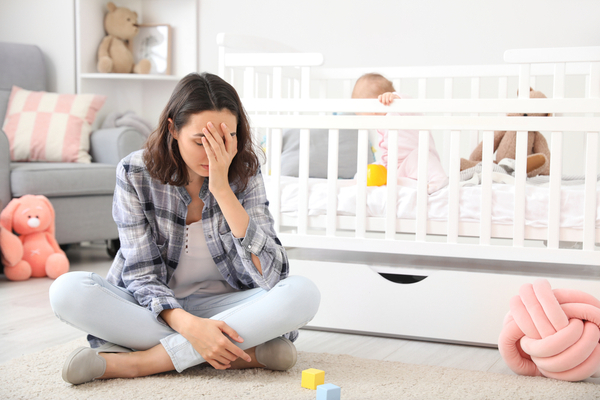A new “miracle” drug that addresses one of the most common pregnancy complications — postpartum depression — is one step closer to being on the shelves, according to new research just released on June 30th. Scientists from Northwell Health’s Feinstein Institutes for Medical Research just wrapped up a clinical trial examining the new drug Zuranolone and found more than half of participants saw a full remission of their clinical depression at the end of the trial period.
The neuroactive steroid pill also worked much quicker than typical antidepressants given to women suffering from the condition — trial participants showed “immediate and sustained results” after just three days of taking the drug, Northwell Health said. “Postpartum depression affects one in eight women and currently there is only one FDA approved medication for those women,” stated Dr. Kristina Deligiannidis, the New York-based principal investigator on the trial. “Far too long women suffering from PPD feel ashamed or unsure of how to get the help they need. Through further clinical trials, and potential approval of this drug, these women will have help literally at their fingertips.”
Like other mental health issues that only impact women, postpartum depression — a condition as old as childbirth — has long been understudied and under researched and often goes undiagnosed despite the devastating effects it can have on both mother and child.
Women suffering from postpartum depression have difficulty bonding with their children or caring for them and are often overcome with feelings of hopelessness, anxiety and crushing beliefs about their perceived ineptitude to be a mother. In serious cases, postpartum depression can lead to suicide and in the most extreme cases, women suffering from the condition have felt impelled to hurt or kill their baby. Without intervention, PPD can persist for years.
The Feinstein Institutes’ Zuranolone trial, part of the drug’s crucial Phase 3 study, examined 151 randomized patients at 33 centers across the US in a double-blinded, placebo-controlled test. The study showed that by day 15 of taking the drug, 45 percent of women were in remission, versus 23 percent in the placebo group, and by day 45, 53 percent were in full remission, compared with just 30 percent who received the placebo.
—
Photo Credit: Pixel-Shot /Shutterstock.com
